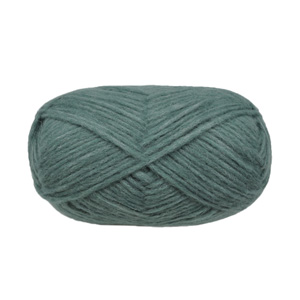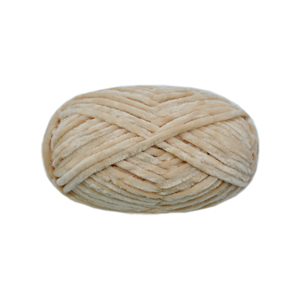What does RCS Certified mean?
 Apr 08,2021
Apr 08,2021

 Evelyn Shi
Evelyn Shi
As issues regarding global sustainable development and low-carbon economy has continued to draw more and more attention, the rational use of renewable resources such as recycled yarn is essential. Reuse of materials helps to reduce dependence on non-renewable resources, reduce waste discharge and the environmental load caused by waste disposal, and contribute to the sustainable development of the globe. Our Company. is a leading company with product innovation and the highest environmental protection awareness, we will keep promoting our eco friendly yarn and recycled yarn and do everything we could lessen the industrial impact on the world around them – now and in the future.
Who and when developed RCS?
The Recycle Claimed Standard (RCS) was first developed through an open and transparent process led by Textile Exchange in 2013. Textile Exchange, a non-profit organization was established in 2002 and has played a powerful role within the textile industry to support the understanding and use of sustainable materials like and proper verification strategies. Textile Exchange has extensive experience in standards development and ownership, however this organization doesn’t engage in any certification activities, but only focus on supporting the quality and adoption of its standards.
What is RCS?
|
|
Recycled yarn could made from recycled plastic bottles and then knit into gloves

What is difference between RCS and GRS?
GRS and RCS: the basics
Both GRS and RCS aim to encourage the use of recycled materials in product manufacture by providing established definitions and benchmarks, offering independent verification of recycled content, and delivering customers the information they need to make informed decisions.
GRS: more rigorous Standard
The GRS has more rigorous requirement includes:
- No chemicals have been used in the processing or manufacture of the product that may be harmful to people or the environment; and
- The product has been produced sustainably, with all sites involved in its manufacture meeting strict social and environmental requirements.
GRS and RCS difference:
The RCS certification requires products with a range from 5% to 100% recycled content, whilst GRS certification requires products between 20% and 100% recycled content, a minimum 50% recycled content is eligible of using the GRS logo. Recycled yarn could be certified with either GRS or RCS.

Who needs to be certified?
Each entity/party who takes legal ownership of the product up until the last B2B transaction needs to be certified, including but not excluding processors, manufacturers, trader, warehousing, supplier and the brand. For recycled yarn or eco-friendly yarn certification, from the material producer, trader, recycle yarn spinner or eco-friendly yarn spinner, distributor and brands all need to be certified.
Where can I find certified suppliers?
For all Organic Content Standard (OCS), Recycled Claim Standard (RCS) and Global Recycled Standard (GRS), please visit https://textileexchange.org/integrity/ and look under “Find Certified Companies”.
For Responsible Wool Standard (RWS), please visit https://textileexchange.org/responsible-wool-standard/
You can find more information about Recycle-100 at https://certifications.controlunion.com/en/certification-programs/certification-programs/rcs-100-recycled-claim-standard




 Home
Home
 What does GRS Certified mean?
What does GRS Certified mean?
 You May Also Like
You May Also Like




 Tel
Tel
 Email
Email
 Address
Address









